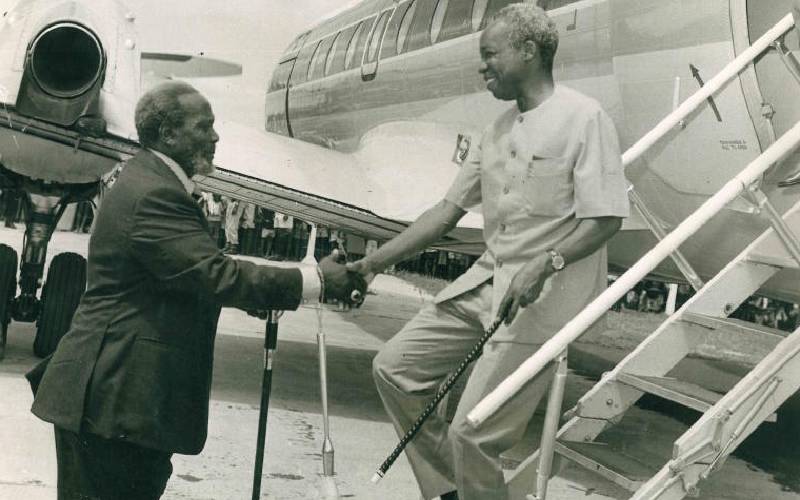×
The Standard e-Paper
Smart Minds Choose Us

Presidents Jomo Kenyatta and Julius Nyerere at Port Reitz Airport when the Tanzanian leader called for a top-level discussion, April 1975. [File, Standard]
Unless his exit date is postponed by a possible run-off and maybe a successful court petition after next year’s presidential poll, today is the last Jamhuri Day commemoration to be presided over by President Uhuru Kenyatta.